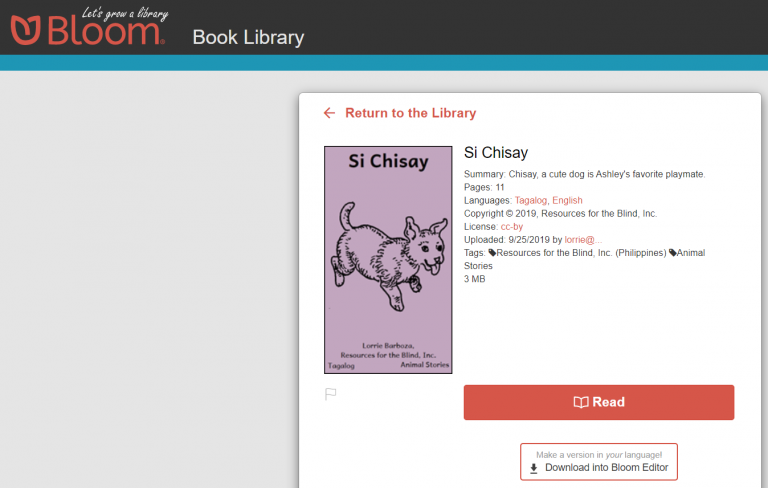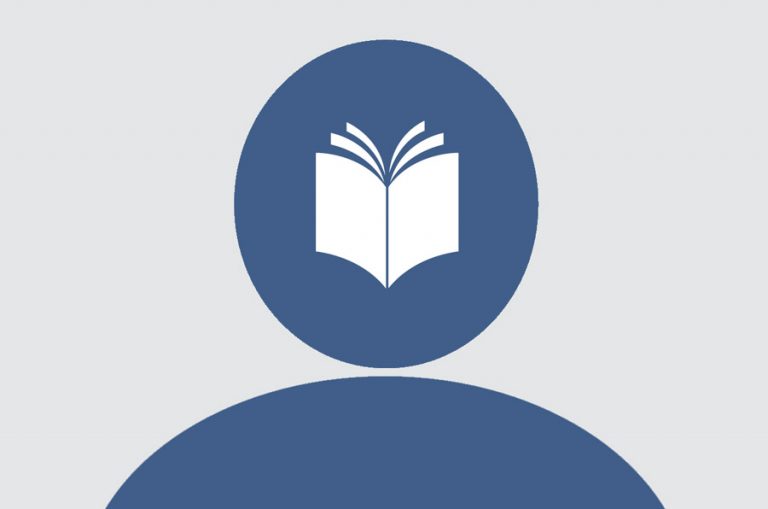Programming a more accessible world
By Deb Fox | Wycliffe Today Christmas 2023
John and Sharon Thomson are passionate about seeing God’s Word available to people in the languages they value most. After completing a PhD in Computer Science, John discovered that he could use his unique skills and expertise for God’s kingdom. He joined Wycliffe in 1985 and began writing code for SIL computer tools that support Bible translation. This included tools such as Bloom, HearThis, and WeSay that enable minority language speakers with any level of education to engage with language tools for themselves.
John has been one of the main developers for Bloom Editor – a free and open-source software program available to minority language communities to create new books in their language and translate existing ones. It also enables them to record an audio reading of the book and then publish the books in various print and digital forms.
The library already hosts 16,500 books in written format. John and Sharon are especially excited by hearing about how the Deaf community are using Bloom and finding it helpful. There are functions that enable the books to include audio narration for ‘Talking Books’, which is helpful for vision impaired readers. More recently, Bloom has made books accessible to Deaf audiences with the option to add sign language videos to create animated books. Currently, the library has 517 sign language books and 3019 talking books. John says that the technology Bloom provides for communities means that, with motivated teachers and eager learners, ‘people can hopefully begin moving from learning to read to reading to learn’.
John and Sharon were recently in Melbourne to reconnect with supporting churches. John also visited Papua New Guinea to consult with SIL’s ‘Education for Life’ team that has started a project in the East Sepik region to provide education for school children in digital formats they can easily understand, including Bloom’s Talking Books. John was exploring ways to enhance Bloom to make it easier for users to create interactive books where children can play language games on electronic pages.
Please pray for John and Sharon as they prepare to head back to their home in the United States. To stay in touch with the Thomsons, sign up to their newsletter at https://wycliffe.org.au/member/john-sharon/.
To experience a Talking Book, go to https://bloomlibrary.org/talking-books or visit https://bloomlibrary.org/sign-language to see how the sign language books are set up.
Bloom: opening up new opportunities for the blind and vision impaired
By Deb Fox | Wycliffe Today Spring 2020 |

An example of one of the books created for Resources for the Blind through Bloom.
In the world today, there are at least 285 million people who are blind or vision impaired. A 2019 report found that developing nations in Africa and Asia have a higher incidence of eye conditions and vision impairment. The level of eye problems is even greater in rural areas, among ethnic minorities and indigenous populations.
The Philippines is a country with over half a million blind or vision impaired people. In early 2019, Liz was part of a pilot project with Resources for the Blind Philippines (RBI), using the Bloom Reader to create digital books for the blind and those with visual impairments.
Bloom was developed by SIL International as easy-to-use software for creating books and translating them into multiple languages. Australian member John Thomson is one of the Bloom developers and says that people with limited computer skills can easily create literacy materials for their own minority language groups. Bloom is open-source software, making it accessible for more people throughout the world. It also includes ‘shell books’—templates that can be easily modified for specific needs. In addition to books that the general language community can access, Bloom enables groups which are often marginalised to access literature and Scripture.
Liz explains:
 SIL LEAD was a major winner of a competition run by All Children Reading, a partnership of USAID, World Vision and the Australian Government. The prize money enabled SIL to enhance the Bloom software with features to allow users to create reading materials suitable for people with visual impairments. During the pilot project, forty books were created at schools in three major Filipino languages, published to tablets and tested with students who are blind or visually impaired.
SIL LEAD was a major winner of a competition run by All Children Reading, a partnership of USAID, World Vision and the Australian Government. The prize money enabled SIL to enhance the Bloom software with features to allow users to create reading materials suitable for people with visual impairments. During the pilot project, forty books were created at schools in three major Filipino languages, published to tablets and tested with students who are blind or visually impaired.
To help implement the program, Liz served as an IT consultant providing Bloom training to RBI staff in Manila. She says that a moment which stood out to her was seeing one of the older teachers who did not have a lot of computer skills coming to the training and being able to create books in Bloom:
It was like this light was turned on inside her as she started writing a story in one of the local languages and creating tools to help her students engage with the story. Seeing her confidence improve within a few days of training was worth it.
One thing the team needed to focus on was the appearance of illustrations to cater for different levels of visual impairment. This required adding descriptions to images—a necessary element, particularly for those with colour blindness. Various checkboxes can be marked in Bloom to simulate how the image will look to someone with red/green colour blindness, blue/yellow colour blindness or someone with cataracts. The books also needed to be recorded as ‘talking books’, including the image descriptions.
Liz says she is grateful to have been a part of this pilot project which will improve the quality of learning and accessibility for visually impaired students.
Many children who were previously unable to access reading materials can now read books and Bible stories and share them with their families. They may not have 20/20 vision but they do have a bright future ahead.
For more information
Bloom Reader: https://bloomlibrary.org/
Resources for the Blind: http://www.blind.org.ph/




 Thanks for your patience...
Thanks for your patience...